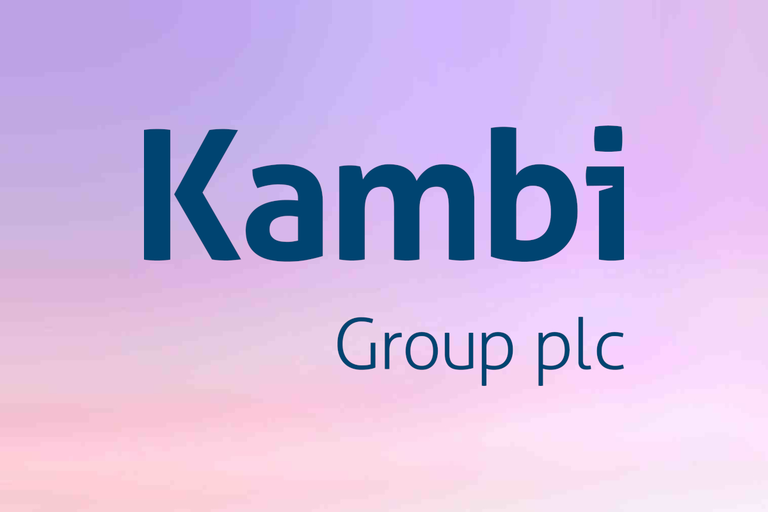Kambi Group plc Repurchases 40,000 Shares

Kambi Group plc, a renowned name in the gaming industry, has recently concluded a significant phase of its share buyback program. From April 1st to April 5th, 2024, the company repurchased a total of 40,000 ordinary B shares (ISIN: MT0000780107). This initiative falls within the framework of the share buyback program approved at the Extraordinary General Meeting on June 19, 2023.
Objective and Framework of the Share Buyback Program
The primary objective behind Kambi’s share buyback program is to generate added value for its shareholders. Additionally, it aims to enhance the flexibility of the company’s capital structure by reducing capital. The program operates under the regulatory guidelines outlined in the Maltese Companies Act, the EU Market Abuse Regulation No 596/2014 (MAR), Commission Delegated Regulation (EU) No 2016/1052 (Safe Harbour Regulation), and other pertinent regulations.
Details of the Buyback
During the Buyback Period, Kambi acquired a total of 40,000 ordinary B shares at a volume-weighted average price of 92.44 SEK. Since its commencement on March 18, the program has witnessed the repurchase of 127,000 ordinary B shares, averaging at 93.76 SEK per share until April 5, 2024.
Execution and Oversight
All share acquisitions have been executed on Nasdaq First North Growth Market in Stockholm. Carnegie Investment Bank AB facilitated these transactions on behalf of Kambi. As of April 5, 2024, Kambi holds 1,022,592 of its own shares, constituting a fraction of the total 31,278,297 ordinary B shares issued by the company. The buyback program authorizes Kambi to repurchase a maximum of 3,127,830 ordinary B shares, with a cap of €4.0 million.
Benefits to Shareholders
The share buyback program isn’t just a financial maneuver; it’s a strategic move aimed at enhancing shareholder value. By reducing the outstanding share count, Kambi creates a more favorable earnings-per-share (EPS) ratio, potentially increasing shareholder returns. Furthermore, the program signifies management’s confidence in the company’s future performance and underscores its commitment to enhancing shareholder wealth.
Market Response and Investor Sentiment
The announcement of Kambi’s share buyback initiative has garnered attention in the investment community. Such moves often signal to investors that the company views its stock as undervalued, instilling confidence among shareholders. This positive sentiment can translate into increased demand for the company’s shares, potentially driving up stock prices.
Analyst Insights
Financial analysts closely monitor share buyback programs as they offer insights into a company’s financial health and management’s confidence in its future prospects. Analysts may interpret Kambi’s buyback as a bullish signal, indicating optimism about the company’s growth trajectory and earnings potential. Such perceptions could influence investment recommendations and target price adjustments by analysts covering Kambi’s stock.
Strategic Implications
Beyond the immediate financial implications, share buyback programs carry strategic significance. They enable companies like Kambi to optimize their capital structure, deploying excess cash to repurchase undervalued shares rather than pursuing alternative investments. Additionally, by reducing the number of outstanding shares, companies enhance their earnings per share (EPS), which can bolster investor confidence and attract new shareholders.
Regulatory Compliance and Transparency
It’s imperative for companies engaging in share buyback programs to adhere to regulatory frameworks and ensure transparency in their operations. Kambi’s adherence to the Maltese Companies Act, EU Market Abuse Regulation, and other relevant regulations underscores its commitment to ethical business practices and regulatory compliance.
Future Outlook
The conclusion of this phase of Kambi’s share buyback program sets the stage for future strategic initiatives. As the company continues to navigate the dynamic landscape of the gaming industry, shareholders can anticipate further efforts aimed at enhancing shareholder value and reinforcing Kambi’s position as a leader in the market.
Conclusion
Kambi’s recent share repurchase activity underscores its commitment to shareholder value and financial flexibility. As the company continues to execute its strategic initiatives, investors can expect further developments aimed at driving long-term growth and profitability.
FAQs:
What is a share buyback program?
A share buyback program involves a company repurchasing its own shares from the market, reducing the number of outstanding shares.
Why do companies engage in share buybacks?
Companies often engage in share buybacks to signal confidence in their future prospects, enhance shareholder value, and optimize their capital structure.
How do share buybacks benefit shareholders?
Share buybacks can lead to an increase in earnings per share (EPS), potentially boosting shareholder returns. They also indicate management’s belief that the company’s stock is undervalued.
What regulatory frameworks govern share buyback programs?
Share buyback programs are subject to various regulatory frameworks, including company law, securities regulations, and stock exchange rules.
What are the implications of a share buyback on a company’s financials?
Share buybacks reduce a company’s outstanding share count, which can improve financial metrics such as earnings per share (EPS) and return on equity (ROE).
How are share buybacks executed?
Share buybacks are typically executed through open market purchases or tender offers, facilitated by investment banks or brokerage firms.
Can share buybacks impact stock prices?
Share buybacks can influence stock prices, as they often signal to the market that the company views its stock as undervalued, potentially attracting more investors.
What is the significance of Kambi’s recent share buyback activity?
Kambi’s share buyback activity demonstrates its commitment to enhancing shareholder value and financial flexibility, signaling confidence in its future prospects.
What role do financial analysts play in assessing share buyback programs?
Financial analysts closely monitor share buyback programs, interpreting them as signals of management confidence and assessing their impact on a company’s financial health and future performance.
What can investors expect following Kambi’s share buyback program?
Following Kambi’s share buyback program, investors can anticipate further strategic initiatives aimed at driving long-term growth and profitability in the gaming industry.
Muhammad
I am a PHP and WordPress web developer with over 5 years of experience in web development. I specialize in creating responsive websites for my clients. My expertise lies in various web languages including HTML, HTML5, XHTML, Bootstrap, CSS, CSS3, AJAX, JavaScript, jQuery, PHP, and SQL. In addition to my web development skills, I also have CMS skills with WordPress and can convert PSD files to HTML.
Recommended Posts

The Hall of Fame – iGaming’s Legendary Games
May 20, 2024

Technical Needs for iGaming Platforms
May 20, 2024




